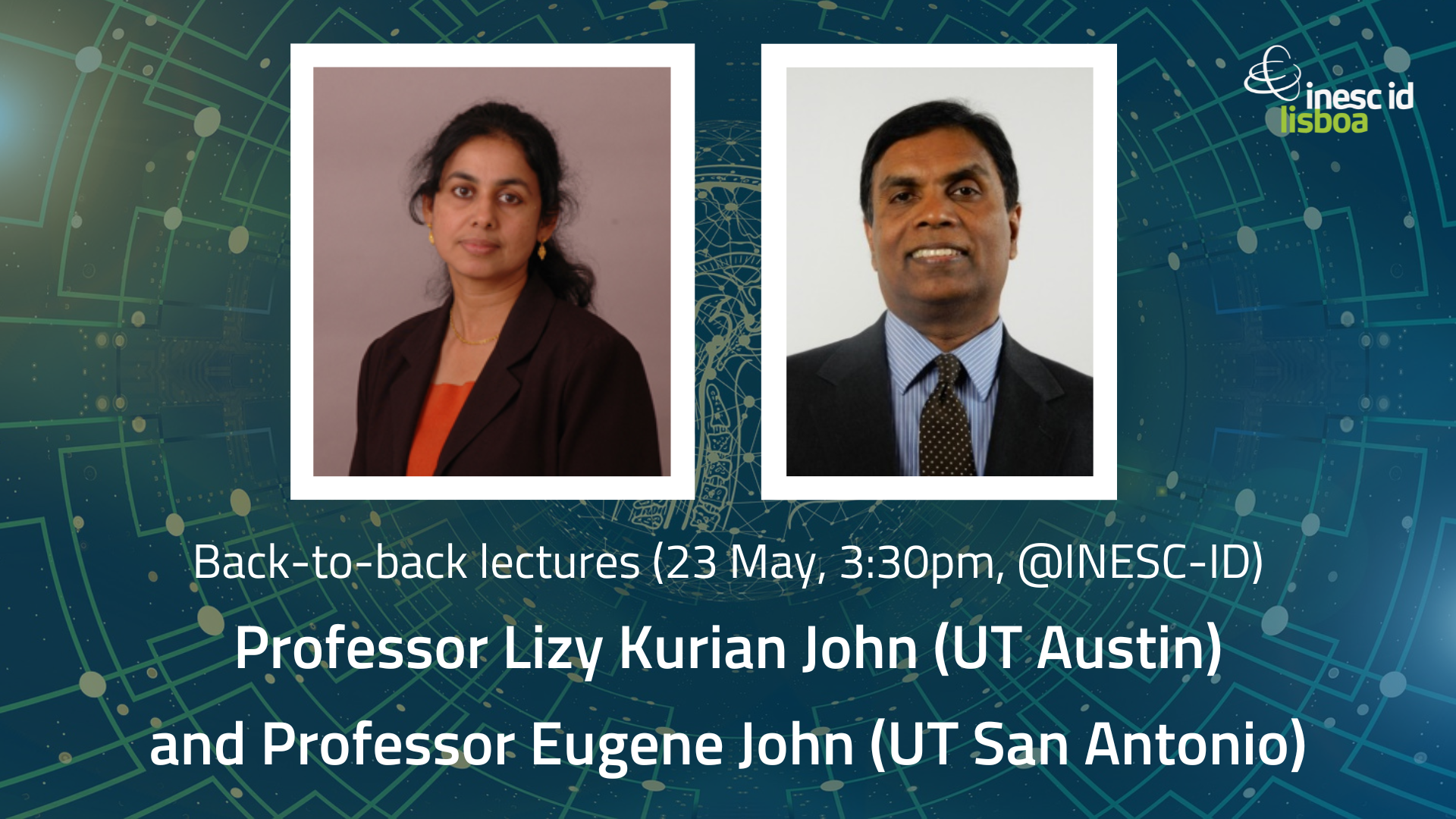
Back-to-back lectures: “Hardware for ML and ML for Hardware” and “ArrhyNet: A High Accuracy Arrhythmia Classification Convolutional Neural Network”
Taking place at INESC-ID, INESC Lisboa Auditorium (Room 9): 23 May 2023, 3:30pm.
Hardware for ML and ML for Hardware
Prof. Lizy Kurian John (UT Austin)
The emerging machine learning applications put exploding demands on hardware systems, and it is important to deliver high throughput, strong security, low latency and low energy consumption, in order to sustain the thriving development of cognitive systems and applications. Designing efficient circuits and systems to enable, support, and harness the power of machine intelligence is important to keep the present momentum of intelligent systems. In this talk, I will describe some of our research on providing efficient hardware infrastructure for ML.
In addition to designing systems for ML, we also conduct research on using ML in designing and evaluating systems. In this talk I’ll describe a few examples on using ML for pre-silicon performance evaluation during design of computer systems.
ArrhyNet: A High Accuracy Arrhythmia Classification Convolutional Neural Network
Prof. Eugene John (UT San Antonio)
Cardiovascular diseases are one of the major causes of all human deaths. Irregular heartbeat or arrhythmia is one among many reasons for cardiovascular diseases. Arrhythmia detection and classification is critical in the treatment of irregular heartbeats. We present a systematic method for high accuracy arrhythmia detection and classification using ArrhyNet, a custom convolutional neural network (CNN) for arrhythmia classification on MIT-BIH Arrythmia Database. High and low frequency noise in the data is eliminated using low pass filter and baseline wander filter respectively, feature extraction is achieved using Daubechies Wavelet Transform and finally Synthetic Minority Over Sampling (SMOTE) technique is utilized to overcome the issue of imbalanced dataset. Using our technique, 16 different types of arrhythmias distributed in Association for Advancement of Medical Instrumentation (AAMI) standard were analyzed. The results indicate that the top-1 accuracy of our five-class classification system for the database used is 92.73%.
Bios:
Lizy Kurian John is Truchard Foundation Chair in Engineering at the University of Texas at Austin. She received her Ph. D in Computer Engineering from the Pennsylvania State University. Her research interests include workload characterization, performance evaluation, memory systems, reconfigurable architectures, and high performance architectures for emerging workloads. She is recipient of many awards including The Pennsylvania State University Outstanding Engineering Alumnus 2011, the NSF CAREER award, UT Austin Engineering Foundation Faculty Award, Halliburton, Brown and Root Engineering Foundation Young Faculty Award 2001, University of Texas Alumni Association (Texas Exes) Teaching Award 2004, , etc. She has coauthored books on Digital Systems Design using VHDL (Cengage Publishers, 2007, 2017), a book on Digital Systems Design using Verilog (Cengage Publishers, 2014) and has edited 4 books including a book on Computer Performance Evaluation and Benchmarking. She is currently the Editor-in-Chief of IEEE Micro. She holds 16 US patents and is an IEEE Fellow (Class of 2009), ACM Fellow and Fellow of the National Academy of Inventors (NAI).
Eugene B. John is a professor in the department of Electrical and Computer Engineering at the University of Texas at San Antonio. He received his Ph.D. in Electrical Engineering from the Pennsylvania State University. His research interests include Energy Efficient Computing, Machine Learning, AI Hardware, Computer Architecture, Low Power VLSI Design and Computer Performance Analysis. He has over 150 publications and holds 5 issued US patents. He is a recipient of the University of Texas System Regents’ Outstanding Teaching Award (2014). He is also a Member of the National Academy of Inventors (NAI). Currently he serves as an Associate Editor for IEEE Transactions on Sustainable Computing and ACM Computing Surveys.



